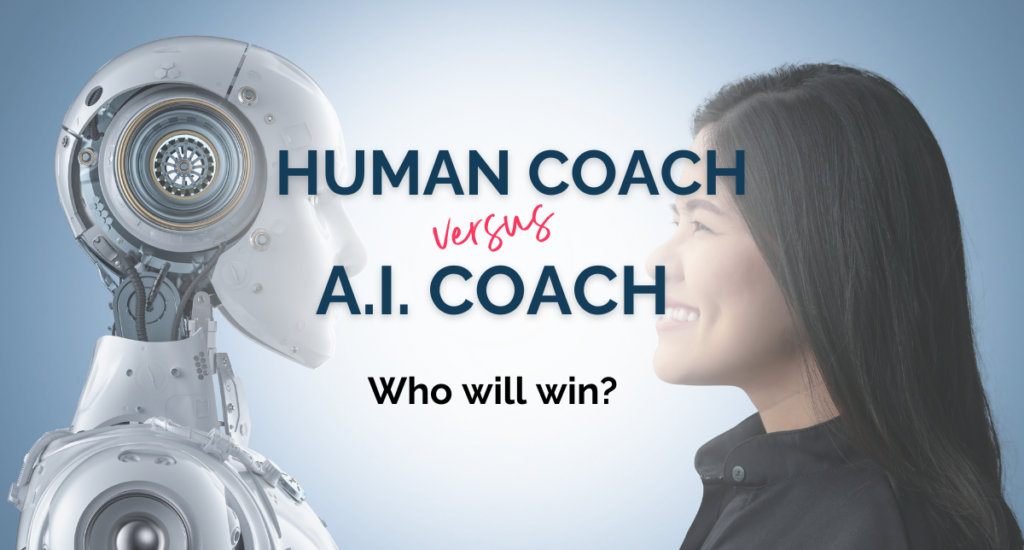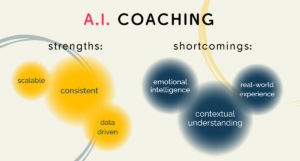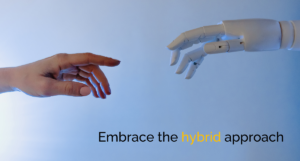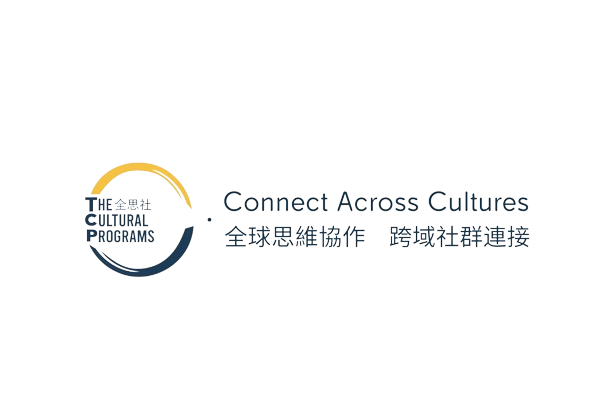
Human Coach vs. AI Coach: Who Wins?
Human Coach vs. AI Coach: Who Wins? https://tcpgrowth.com/wp-content/uploads/2024/04/1714377214866-1024x550.png 1024 550 Ray Yuen Ray Yuen https://secure.gravatar.com/avatar/9973ef178a110f93b1e5f94e265a45a3?s=96&d=mm&r=g- Ray Yuen
- no comments
In the ever-evolving landscape of executive and leadership coaching, two distinct approaches have emerged: the traditional human coach and the innovative AI coach. As technology continues to reshape various industries, the coaching realm is not immune to the potential disruption brought about by artificial intelligence (AI). This article delves into the definitions, strengths, and limitations of both human and AI coaches, ultimately exploring which approach may hold the upper hand in guiding professionals and leaders to success in the commercial world.
Defining Human Coaches and AI Coaches
Human Coaches
Human coaches are seasoned professionals who leverage their extensive experience, emotional intelligence, and interpersonal skills to guide individuals or teams toward personal and professional growth. They employ a range of coaching methodologies, such as active listening, probing questions, and tailored feedback, to foster self-awareness, goal-setting, and actionable strategies for their clients.
Human coaches often specialize in specific areas, such as leadership development, career coaching, or executive coaching, allowing them to provide targeted guidance and insights tailored to their clients’ unique needs and challenges.
AI Coaches
AI coaches, on the other hand, are software programs or applications powered by advanced algorithms and machine learning techniques. These AI systems are designed to analyze data, identify patterns, and provide personalized recommendations and guidance to users. AI coaches can process vast amounts of information, adapt to individual preferences, and offer real-time feedback and support.
AI coaches leverage various technologies, including natural language processing (NLP), predictive analytics, and machine learning algorithms, to understand user inputs, analyze data, and generate personalized recommendations and action plans.
Strengths and Shortcomings: A Comparative Analysis
Human Coaches: Empathy, Intuition, and Customization
One of the most significant strengths of human coaches lies in their ability to establish genuine connections and build trust with their clients. Through active listening and emotional intelligence, human coaches can pick up on subtle cues, understand the nuances of each individual’s unique circumstances, and tailor their approach accordingly. This personalized attention and empathetic understanding can be invaluable in addressing complex emotional and psychological barriers that may hinder personal and professional growth.
Furthermore, human coaches possess a wealth of real-world experience and intuition that can prove invaluable in navigating the complexities of leadership and organizational dynamics. They can draw upon their own journeys, successes, and failures to provide context-specific insights and guidance that resonate with their clients.
However, human coaches are not without their limitations. Their availability and scalability can be constrained by geographical boundaries and time constraints. Additionally, human biases and subjective perspectives may inadvertently influence their coaching approach, potentially limiting the objectivity and breadth of their guidance.

AI Coaches: Data-Driven, Scalable, and Consistent
AI coaches, on the other hand, excel in their ability to process and analyze vast amounts of data, identifying patterns and trends that may be overlooked by human coaches. By leveraging machine learning algorithms and predictive analytics, AI coaches can provide data-driven insights and recommendations tailored to individual needs and goals.
Moreover, AI coaches offer scalability and consistency that can be challenging for human coaches to match. They can simultaneously support numerous clients without compromising the quality of their guidance, and their recommendations are based on objective algorithms, minimizing the potential for human biases or inconsistencies.
However, AI coaches face their own set of limitations. While they can process and analyze data effectively, they may struggle to replicate the nuanced emotional intelligence and empathy that human coaches can offer. Additionally, AI coaches may lack the contextual understanding and real-world experience that human coaches possess, potentially limiting their ability to provide truly personalized and holistic guidance.

Real-Life Cases and Statistics
To substantiate the arguments presented, let’s explore some real-life cases and official statistics that shed light on the effectiveness of human and AI coaches.
Case Study #1: Executive Coaching at a Fortune 500 Company
A Fortune 500 company implemented a comprehensive executive coaching program, utilizing both human coaches and AI-powered coaching platforms. According to an internal report, executives who worked with human coaches reported higher levels of job satisfaction, improved decision-making skills, and better work-life balance compared to those who solely relied on AI coaches.
However, the AI coaching platform proved invaluable in providing real-time feedback, tracking progress, and identifying areas for improvement based on data analysis. The company ultimately adopted a hybrid approach, combining the strengths of human coaches and AI coaches to maximize the benefits for their executives.
Case Study #2: AI Coaching for Sales Teams
A leading software company implemented an AI-powered coaching solution to support its global sales team. The AI coach analyzed data from various sources, including customer interactions, sales performance metrics, and market trends, to provide personalized coaching and recommendations to each sales representative.
According to the company’s internal report, the AI coach helped increase sales productivity by 15% and improved customer satisfaction scores by 12% within the first year of implementation. Sales representatives appreciated the real-time feedback and data-driven insights provided by the AI coach, which helped them identify areas for improvement and adapt their strategies accordingly.
Statistics: Coaching Industry Growth and Adoption
According to the International Coaching Federation (ICF), the global coaching industry was valued at $2.849 billion in 2019, which may be driven by the increasing demand for professional development and the recognition of coaching as a valuable tool for personal and organizational success.
World Economic Forum (WEF) opined that the emergence of AI-powered career coaches is attributable to “the rapid advancements in technology, in particular the rise of generative AI tools in recent months.” WEF also analyzes that “An AI-powered career coach usually works with data points collected from its users, such as their career goals, skills, work experience, education and the challenges they are facing in their professional paths. These insights can help draft résumés and cover letters, interpret job descriptions, explore different careers and stage mock job interviews.”
While the adoption of AI coaching solutions is still in its early stages, a report by Futurelearn.com shows that 59% of HR employees from tech to medical fields think that career coach advice from AI “can help job seekers score the perfect gig, and another 63% think AI can provide useful job seeking advice to candidates.” Such belief may be fueled by the increasing availability of AI-powered coaching platforms and the potential cost savings and scalability they offer.

Research on Effectiveness of Executive Coaching
A study conducted by Korn Ferry on the effectiveness of executive coaching found the following observations: “i) Skills/performance improvement; ii) Coachees rate higher than others; iii) Effects of coaching are far-reaching; iv) Coaching effectiveness is greater when tied to objectives; v) Coaching ROI varies by situation. In short, executive coaching had a significant positive impact on leadership effectiveness, work-related well-being, and organizational performance.
It is believed that executives who received coaching reported improvement in job satisfaction, increase in productivity, and enhancement in their ability to manage stress effectively. Additionally, the organizations that invested in executive coaching is expected to see increase in revenue growth and improvement in employee engagement scores.
Statistics: AI Coaching in the Workplace
According to a research study conducted by academics from the UK, the Netherlands, and South Africa in 2022, it was discovered after using AI and goal theory that the AI coach was as effective as human coaches. Three significant implications were found: i) AI coaching could democratize coaching and is scalable; ii) AI coaching could extend the demand for human coaching; and iii) AI could replace human coaches who use basic, model-bound coaching methodologies.
Similar reports also highlight that AI coaches can provide personalized feedback, track progress, and identify areas for improvement more efficiently than traditional methods. However, they also emphasize the importance of combining AI coaches with human coaches to ensure a well-rounded and effective coaching experience.

The Verdict: A Hybrid Approach Prevails
Based on the analysis of strengths, limitations, real-life cases, and industry statistics, it becomes evident that neither human coaches nor AI coaches hold a clear-cut advantage in isolation. Instead, a hybrid approach that combines the best of both worlds may be the most effective strategy for guiding professionals and leaders in the commercial world.
Human coaches bring invaluable emotional intelligence, empathy, and real-world experience to the table, enabling them to establish deep connections and provide personalized guidance tailored to individual needs. However, AI coaches offer data-driven insights, scalability, and consistency that can complement and enhance the coaching experience.
By integrating AI coaches into the coaching process, human coaches can leverage data-driven recommendations and real-time feedback to augment their own expertise and intuition. Conversely, AI coaches can benefit from the contextual understanding and emotional intelligence provided by human coaches, ensuring that their guidance remains grounded in real-world scenarios and human experiences.
This symbiotic relationship between human coaches and AI coaches has the potential to create a powerful coaching ecosystem that capitalizes on the strengths of both approaches while mitigating their respective limitations.
The Hybrid Approach in Action
Several organizations have already embraced the hybrid approach, combining the strengths of human coaches and AI coaches to drive better results. For example, a global consulting firm implemented a coaching program that paired executives with both a human coach and an AI coach.
The human coach provided personalized guidance, emotional support, and real-world insights, while the AI coach analyzed data from various sources, including performance metrics, customer feedback, and industry trends, to provide data-driven recommendations and actionable insights.
According to the firm’s internal report, this hybrid approach led to a 25% increase in leadership effectiveness scores and a 17% improvement in employee engagement within the first year of implementation.
Another example comes from a leading technology company that developed an AI-powered coaching platform to support its employees’ professional development. While the AI coach provided personalized learning paths, progress tracking, and data-driven recommendations, the company also offered access to a network of human coaches for more in-depth guidance and support.
This hybrid approach allowed employees to benefit from the convenience and scalability of the AI coach while also receiving personalized coaching and mentorship from experienced human coaches. The company reported a 30% increase in employee retention rates and a 22% improvement in overall job satisfaction scores after implementing the hybrid coaching program.
The Future of Coaching: Embracing the Hybrid Approach
As the coaching industry continues to evolve, it is becoming increasingly clear that the future lies in embracing a hybrid approach that leverages the strengths of both human coaches and AI coaches. By combining the emotional intelligence, empathy, and real-world experience of human coaches with the data-driven insights, scalability, and consistency of AI coaches, organizations can create a powerful coaching ecosystem that drives personal and professional growth while maximizing the benefits for their employees and leaders.

Conclusion
In conclusion, the question of “Human Coach vs. AI Coach: Who Wins?” may not have a definitive winner. Instead, the true victor may be the coachees themselves, who can benefit from the synergistic combination of human empathy and AI-driven insights, propelling them towards personal and professional growth in the ever-changing commercial landscape.
More about Ray Yuen: https://tcpgrowth.com/portfolio/ray-yuen/
The Cultural Programs of TCP Growth Limited is a cross-cultural communications consultancy providing corporate training & development programs, as well as driving cultural growth initiatives across Greater China and Asia’s emerging markets. www.tcpgrowth.com
- Posted In:
- Home articles
- Margot Ling
